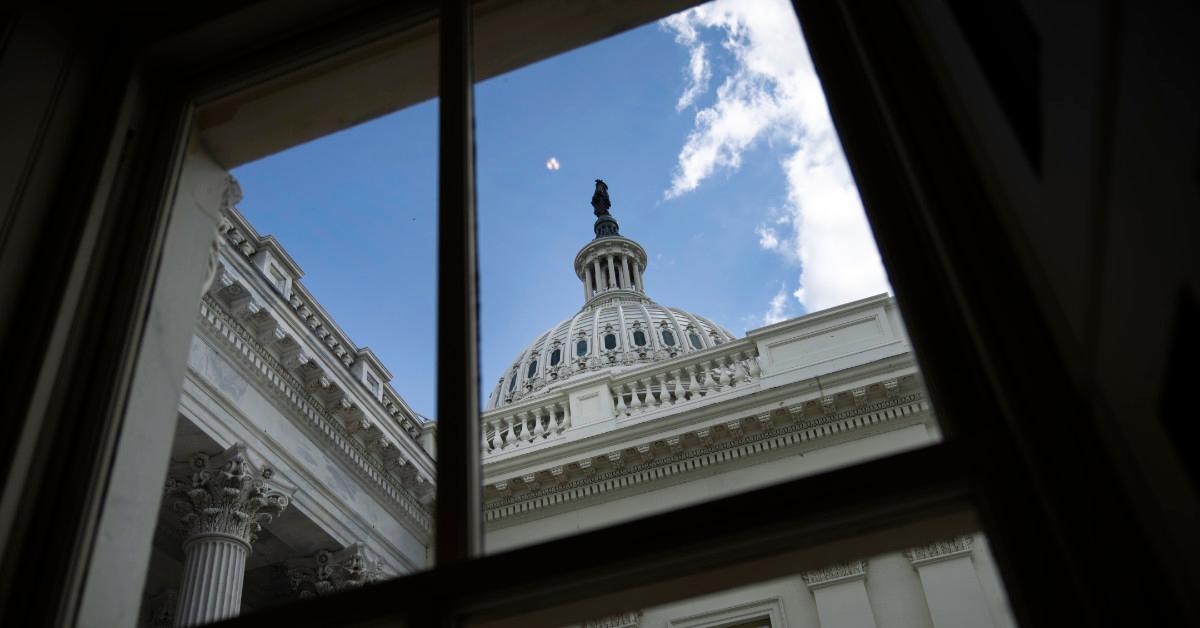Infrastructure Bill: $550 Billion in New Spending, No Stimulus Checks
Does the infrastructure bill include stimulus checks? Learn what is and isn’t included in the bipartisan Infrastructure Investment and Jobs Act.
Aug. 3 2021, Published 8:08 a.m. ET

The bipartisan infrastructure bill under consideration in the U.S. Senate calls for $550 billion in new federal funding, but it doesn’t include stimulus checks like the recent economic impact payments. Nevertheless, the push for additional direct payments for Americans continues.
The group of senators who negotiated the bill announced their agreement on July 28 and released the 2,702-page legislative text of the $1.2 trillion Infrastructure Investment and Jobs Act four days later.
"We are proud to announce we have reached a bipartisan agreement on our proposal to make the strongest investment in America's critical infrastructure in a generation," the senators said on July 28, according to CNN.
“Our plan will create good-paying jobs in communities across our country without raising taxes. Reaching this agreement was no easy task—but our constituents expect us to put in the hard work and show that two parties can still work together to address the needs of the American people.”
The infrastructure bill doesn't include stimulus checks.

According to The National Interest, the infrastructure bill doesn't include funding for stimulus checks.
Instead, the bill calls for $550 billion in new federal funding, including $73 billion to rebuild the country’s electric grid, $66 billion to improve rail systems, $65 billion to boost broadband Internet access, $55 billion to improve water infrastructure, $40 billion to repair bridges, $39 billion to modernize public transit, and $7.5 billion for electric vehicle charging stations, according to CNN.
Some senators want recurring direct payments and automatic unemployment extensions during the COVID-19 crisis.
In March, a group of 11 senators—including Senate Budget Committee Chair Bernie Sanders (I-Vt.), Sen. Elizabeth Warren (D-Mass.), Sen. Cory A. Booker, (D-N.J.), and Sen. Kirsten Gillibrand (D-N.Y.)—urged President Joe Biden in an open letter to “include recurring direct payments and automatic unemployment insurance extensions tied to economic conditions” in his Build Back Better economic plan.
“This crisis is far from over, and families deserve certainty that they can put food on the table and keep a roof over their heads. Families should not be at the mercy of constantly-shifting legislative timelines and ad hoc solutions,” they wrote, in part. “Families shouldn’t have to worry about whether they’ll have enough money to pay for essentials in the months ahead as the country continues to fight a global pandemic.”
More than 2.7 million people have signed a petition asking Congress for $2,000 per month for U.S. adults.
A Denver restaurant owner named Stephanie Bonin recently started a Change.org petition asking Congress “to support families with a $2,000 payment for adults and a $1,000 payment for kids immediately, and continuing regular checks for the duration of the crisis.” So far, more than 2.7 million people have signed the petition.
Despite the calls for more stimulus payments, Raymond James policy analyst Ed Mills told CNBC in March that the fourth round of stimulus checks wasn't likely. “D.C. has largely started to pivot towards the recovery and an infrastructure bill,” he added.
